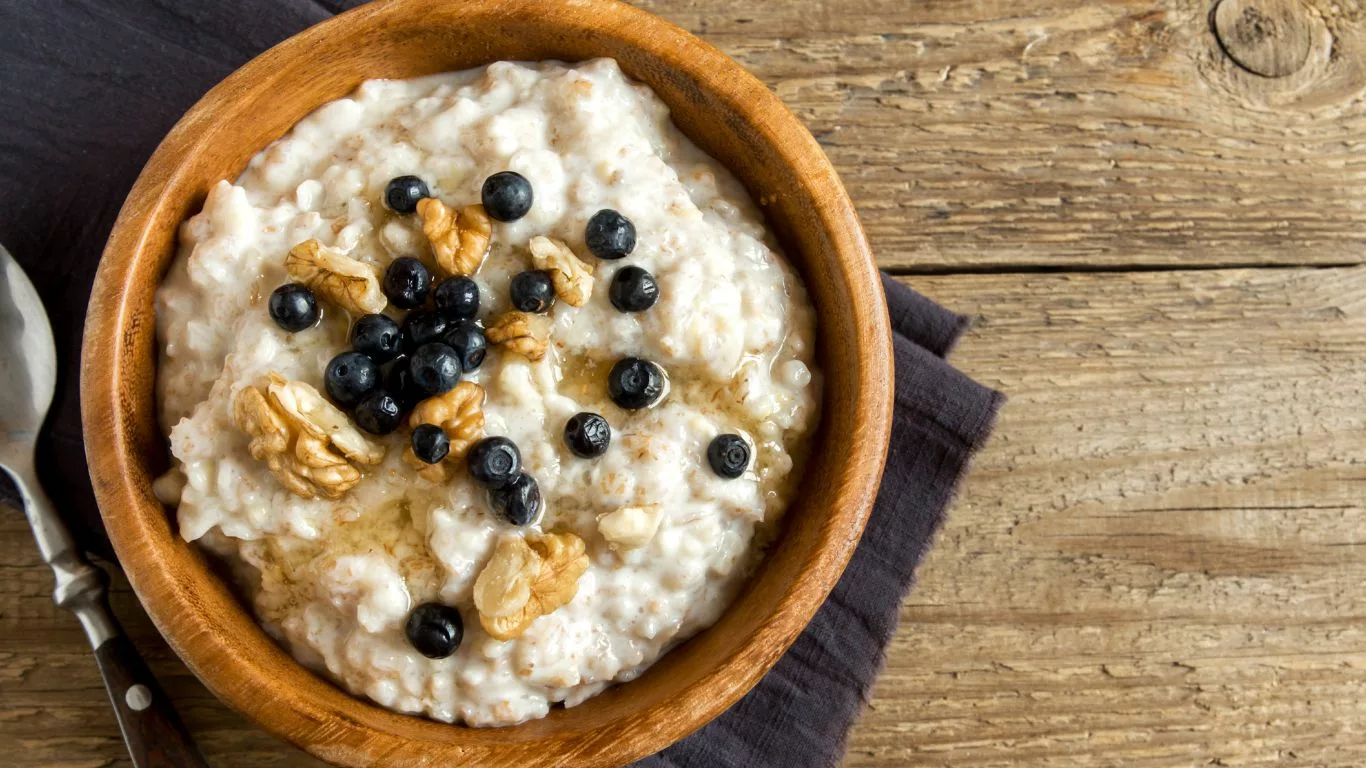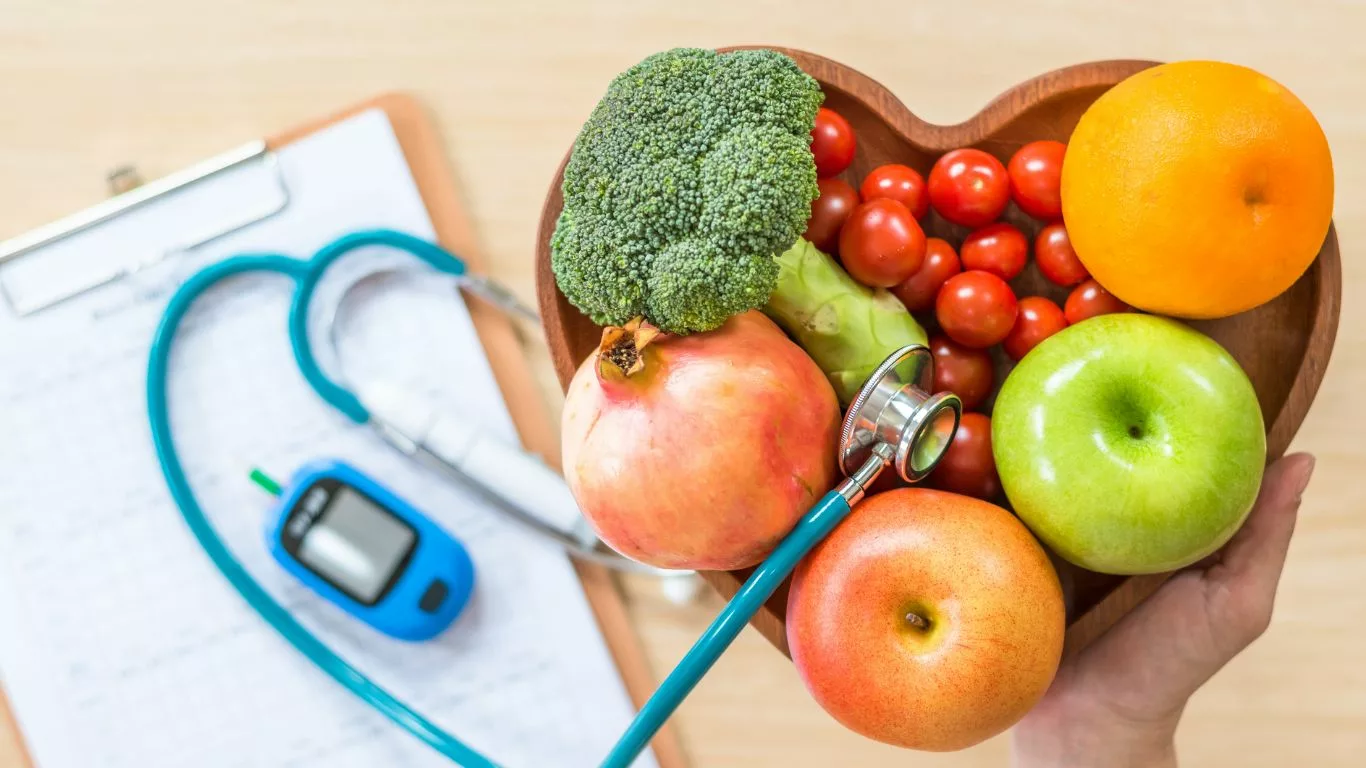Mastering Cholesterol: Best & Worst Foods for Heart Health
Discover how dietary choices impact cholesterol levels. Learn about worst foods to avoid and healthier alternatives for a heart-healthy lifestyle.
High cholesterol is a multifaceted health concern that demands careful consideration of dietary choices and lifestyle factors. This comprehensive guide delves into the intricate relationship between diet and cholesterol levels, highlighting the foods that can significantly impact your cardiovascular health. By understanding the intricate mechanisms behind these foods and their effects on cholesterol, you can empower yourself to make informed decisions that contribute to a heart-healthy lifestyle.
Impact of Diet on Cholesterol Levels
Cholesterol is a critical component of cell membranes and is essential for hormone production, but when its levels become imbalanced, it can pose serious health risks. Elevated levels of low-density lipoprotein (LDL) cholesterol have been linked to an increased risk of atherosclerosis, which is the buildup of fatty deposits in artery walls that can lead to heart disease and stroke. Conversely, high-density lipoprotein (HDL) cholesterol is associated with reduced cardiovascular risk, as it helps transport excess cholesterol from the bloodstream to the liver for elimination.
Studies have demonstrated that dietary choices play a pivotal role in shaping cholesterol profiles. Foods high in trans fats and saturated fats can raise LDL cholesterol, while those rich in unsaturated fats, fiber, and antioxidants can promote heart health by lowering LDL cholesterol and increasing HDL cholesterol.

Worst Foods for High Cholesterol
A deeper understanding of the impact of specific foods on cholesterol levels can guide your dietary decisions:
Saturated and Trans Fats
- Processed Meats: Processed meats, such as sausages and hot dogs, are not only high in saturated fats but often contain harmful additives like sodium and nitrites. Research indicates that consumption of processed meats is associated with an increased risk of heart disease and mortality.
- Fried Foods: Foods cooked in unhealthy oils undergo a chemical transformation that produces trans fats, which are notorious for raising LDL cholesterol and decreasing HDL cholesterol. The link between trans fats and heart disease has prompted many countries to implement bans or restrictions on their use.
- Butter and Lard: Butter and lard, though commonly used in cooking, are rich in saturated fats that can contribute to elevated LDL cholesterol. Replacing these fats with alternatives like olive oil, which contains heart-healthy monounsaturated fats, can positively impact cholesterol levels.
Diet High in Added Sugars
- Sugary Snacks and Desserts: Diets high in added sugars are associated with obesity, insulin resistance, and unfavorable changes in cholesterol levels. Excessive sugar consumption can lead to increased triglycerides, decreased HDL cholesterol, and an overall higher risk of heart disease.
- Sugar-Sweetened Beverages: Regular consumption of sugary drinks like soda and sweetened juices can contribute to weight gain, obesity, and metabolic disturbances that negatively affect cholesterol profiles. Opt for water, herbal tea, or unsweetened beverages instead.
Highly Processed Foods
- Packaged Snacks: Packaged snacks often contain unhealthy fats, excessive sodium, and artificial additives. The combination of trans fats and sodium can contribute to inflammation, arterial dysfunction, and elevated blood pressure, all of which are risk factors for heart disease.
- Instant Noodles: Instant noodles are a convenient option but are typically devoid of essential nutrients and high in sodium. Frequent consumption may lead to higher blood pressure and a less favorable lipid profile. Opt for whole-grain alternatives or homemade noodle dishes with nutrient-rich ingredients.
- Margarine and Shortening: The quality of margarine has evolved over the years, with some products now containing heart-healthy fats. However, it’s crucial to choose soft, non-hydrogenated margarines that are free from trans fats. Reading labels carefully can help you identify suitable options.
Excessive Dietary Cholesterol
- Organ Meats: While organ meats are nutrient-dense and provide essential vitamins and minerals, they are also high in cholesterol. If you enjoy organ meats, consume them in moderation and balance their inclusion with other heart-healthy foods.
- Egg Yolks: Eggs are a highly nutritious food, rich in protein, vitamins, and minerals. However, the yolks contain cholesterol. Recent research suggests that for most people, dietary cholesterol has a smaller impact on blood cholesterol levels than previously believed. Current dietary guidelines no longer set a specific limit on daily egg consumption for healthy individuals.
- Shellfish (in moderation): Shellfish are naturally low in saturated fats and can be a valuable source of protein, vitamins, and minerals. While they do contain cholesterol, studies have shown that their overall effect on blood cholesterol levels is relatively modest. Enjoying shellfish in moderation as part of a balanced diet is generally considered safe for most individuals.

Healthier Alternatives
Making conscious choices to include heart-healthy foods in your diet can have a profound impact on cholesterol levels and cardiovascular well-being:
Heart-Healthy Fats
- Avocado: Avocado is a versatile fruit rich in monounsaturated fats, which have been linked to lower LDL cholesterol levels and improved cardiovascular health. Additionally, avocados are a good source of potassium, a mineral that supports healthy blood pressure levels.
- Nuts and Seeds: Incorporating a variety of nuts and seeds, such as almonds, walnuts, chia seeds, and flaxseeds, provides a potent combination of healthy fats, fiber, and plant sterols. These components work together to reduce LDL cholesterol and support overall heart health.
- Olive Oil: Olive oil, particularly extra virgin olive oil, is a cornerstone of the Mediterranean diet, renowned for its cardiovascular benefits. Its high content of monounsaturated fats and powerful antioxidants contribute to improved lipid profiles, reduced inflammation, and enhanced arterial function.
Fiber-Rich Foods
- Oats and Whole Grains: The soluble fiber in oats and whole grains, known as beta-glucans, forms a gel-like substance in the digestive tract that binds to cholesterol and helps remove it from the body. Regular consumption of oats and whole grains can lead to lower LDL cholesterol levels and a reduced risk of heart disease.
- Legumes: Beans, lentils, and chickpeas are excellent sources of soluble fiber and plant-based protein. Their consumption is associated with improved blood lipid profiles, reduced inflammation, and enhanced glycemic control, making them a valuable addition to a cholesterol-lowering diet.
- Fruits and Vegetables: A diet rich in a variety of colorful fruits and vegetables provides an array of antioxidants, vitamins, minerals, and dietary fiber. These nutrients collectively contribute to lower LDL cholesterol levels, reduced oxidative stress, and enhanced cardiovascular health.
Lean Protein Sources
- Skinless Poultry: Skinless poultry, such as chicken and turkey, is a lean source of protein that can replace processed meats in your diet. Choosing lean cuts and removing the skin significantly reduces saturated fat intake while providing essential amino acids for muscle health.
- Fish (especially fatty fish): Fatty fish like salmon, mackerel, and trout are exceptional sources of omega-3 fatty acids, specifically eicosapentaenoic acid (EPA) and docosahexaenoic acid (DHA). These fatty acids confer numerous cardiovascular benefits, including reducing triglycerides, lowering blood pressure, and decreasing inflammation.
- Plant-Based Proteins: Plant-based protein sources, such as tofu, tempeh, legumes, and quinoa, offer valuable alternatives to animal products. These protein sources are not only rich in nutrients but also devoid of cholesterol and saturated fats, making them ideal for supporting heart health.

Creating a Cholesterol-Friendly Diet Plan
Designing a cholesterol-friendly diet plan requires thoughtful consideration and a strategic approach:
Meal Planning Tips
- Variety: Embrace a diverse range of foods to ensure you receive a broad spectrum of nutrients that contribute to heart health. Aim for a colorful plate filled with a variety of fruits, vegetables, whole grains, lean proteins, and healthy fats.
- Portion Control: Be mindful of portion sizes to avoid overconsumption of calories and saturated fats. Utilize smaller plates, bowls, and utensils to help regulate portion sizes and prevent overindulgence.
- Balanced Meals: Construct meals that combine different food groups to provide a balanced nutritional profile. Pairing carbohydrates with protein, fiber, and healthy fats helps stabilize blood sugar levels and promotes satiety.
- Home Cooking: Preparing meals at home gives you greater control over ingredient quality and cooking methods. Experiment with herbs, spices, and healthy cooking oils to enhance flavor without relying on excessive fats and salts.
Reading Nutrition Labels
- Serving Size: Pay attention to the serving size indicated on nutrition labels to accurately assess the nutritional content of the food. Adjust portion sizes accordingly to align with your dietary goals.
- Trans Fat Content: Check the ingredient list for the presence of partially hydrogenated oils, which indicate the presence of trans fats. Choose products with zero trans fats and minimal saturated fats to support heart health.
- Sugar Content: Examine the sugar content and look for added sugars in ingredient lists. Keep in mind that added sugars can hide under various names, such as sucrose, high-fructose corn syrup, and cane juice.

Lifestyle Changes for Cholesterol Management
Comprehensive cholesterol management extends beyond dietary adjustments and encompasses various lifestyle factors:
Regular Physical Activity
- Aerobic Exercise: Engage in regular aerobic activities, such as brisk walking, jogging, cycling, and swimming, to enhance cardiovascular fitness. Aim for at least 150 minutes of moderate-intensity exercise per week.
- Strength Training: Incorporate strength training exercises, such as weightlifting and bodyweight exercises, to build muscle mass, boost metabolism, and improve overall body composition.
- Flexibility and Balance: Include flexibility-enhancing activities like yoga, Pilates, and stretching to maintain joint mobility, reduce the risk of injuries, and promote relaxation.
Importance of Hydration
- Water Intake: Staying adequately hydrated is essential for overall health and supports optimal cardiovascular function. Water aids in digestion, nutrient transport, and the elimination of waste products from the body.
- Hydrating Foods: In addition to drinking water, consume water-rich foods like fruits (e.g., watermelon, oranges) and vegetables (e.g., cucumbers, lettuce) to contribute to your daily hydration needs.
- Limiting Sugary Beverages: Reduce or eliminate the consumption of sugar-sweetened beverages, as they can contribute to excess calorie intake and negatively impact blood sugar levels.
Stress Reduction Techniques
- Mindfulness Meditation: Practicing mindfulness meditation involves focusing your attention on the present moment, which can help reduce stress, anxiety, and emotional eating behaviors.
- Deep Breathing Exercises: Deep breathing techniques, such as diaphragmatic breathing, promote relaxation and activate the body’s relaxation response. Regular practice can help lower stress hormones and promote a sense of calm.
- Progressive Muscle Relaxation: This technique involves sequentially tensing and relaxing different muscle groups to promote physical and mental relaxation. It can help alleviate muscle tension and stress-related symptoms.

Consulting a Healthcare Professional
While making informed dietary and lifestyle changes can positively impact cholesterol levels, consulting a healthcare professional is a crucial step:
Health Assessment:
- Cholesterol Screening: Your healthcare provider can assess your cholesterol levels through blood tests and evaluate your risk factors for heart disease. Based on your results, they can provide personalized guidance for cholesterol management.
- Medical History: Your medical history, including family history, previous health conditions, and current medications, can provide insights into your overall cardiovascular risk and help tailor recommendations to your specific needs.
Professional Guidance:
- Individualized Recommendations: A healthcare professional can offer personalized recommendations based on your unique health status, preferences, and goals. This may include dietary modifications, exercise recommendations, and potential medication options.
- Monitoring and Follow-Up: Regular follow-up appointments allow your healthcare provider to track your progress, assess the effectiveness of interventions, and make any necessary adjustments to your cholesterol management plan.

Conclusion
The journey to managing high cholesterol involves a comprehensive approach that encompasses dietary choices, lifestyle modifications, and professional guidance. By arming yourself with knowledge about the impact of specific foods on cholesterol levels, you can make empowered decisions that promote cardiovascular health. Remember that every small step you take towards a heart-healthy lifestyle contributes to a brighter and healthier future.
Appendices
References
1. Grundy, S. M. (2016). Dietary Cholesterol and Cardiovascular Disease. The New England Journal of Medicine, 375(12), 1177-1178. https://pubmed.ncbi.nlm.nih.gov/26109578/
2. Mozaffarian, D., & Ludwig, D. S. (2015). The 2015 US Dietary Guidelines: Lifting the Ban on Total Dietary Fat. JAMA, 313(24), 2421-2422. https://pubmed.ncbi.nlm.nih.gov/26103023/
3. Schwingshackl, L., Schwedhelm, C., Hoffmann, G., Lampousi, A. M., Knüppel, S., Iqbal, K., … & Boeing, H. (2019). Food groups and risk of all-cause mortality: a systematic review and meta-analysis of prospective studies. The American Journal of Clinical Nutrition, 105(6), 1462-1473. https://www.sciencedirect.com/science/article/pii/S0002916522049206
FAQs
Q1: Can I still enjoy eggs if I have high cholesterol?
A1: Current research suggests that moderate egg consumption is unlikely to significantly impact heart disease risk for most individuals. However, it’s essential to consider your overall diet and consult a healthcare professional.
Q2: How can I reduce stress to improve my cholesterol levels?
A2: Engaging in stress-reduction techniques such as mindfulness meditation, deep breathing exercises, and regular physical activity can help lower stress hormones and positively influence cholesterol levels.
Q3: What role does exercise play in managing cholesterol?
A3: Regular physical activity, including aerobic exercises and strength training, can help raise HDL cholesterol, lower triglycerides, and improve overall cardiovascular health.
Disclaimer: The information provided in this article is for educational purposes only and should not be considered medical advice. Individuals with high cholesterol or any underlying health conditions should consult a qualified healthcare professional before making significant dietary or lifestyle changes.

Camellia Wulansari is a dedicated Medical Assistant at a local clinic and a passionate health writer at Healthusias.com. With years of hands-on experience in patient care and a deep interest in preventive medicine, she bridges the gap between clinical knowledge and accessible health information. Camellia specializes in writing about digestive health, chronic conditions like GERD and hypertension, respiratory issues, and autoimmune diseases, aiming to empower readers with practical, easy-to-understand insights. When she’s not assisting patients or writing, you’ll find her enjoying quiet mornings with coffee and a medical journal in hand—or jamming to her favorite metal band, Lamb of God.







